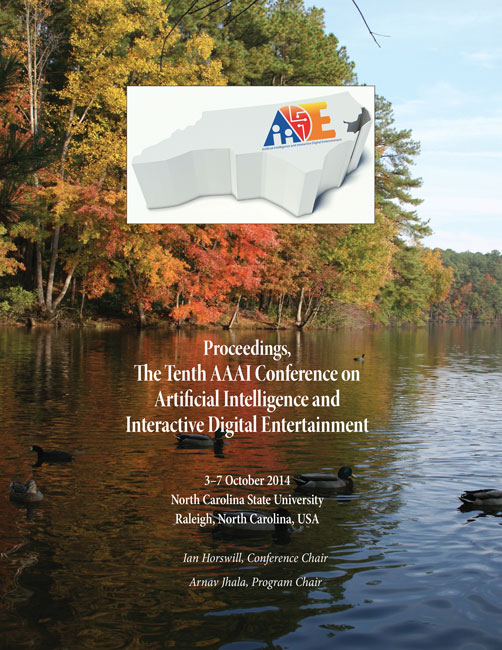Deep Learning-Based Goal Recognition in Open-Ended Digital Games
DOI:
https://doi.org/10.1609/aiide.v10i1.12717Abstract
While many open-ended digital games feature non-linear storylines and multiple solution paths, it is challenging for game developers to create effective game experiences in these settings due to the freedom given to the player. To address these challenges, goal recognition, a computational player-modeling task, has been investigated to enable digital games to dynamically predict players’ goals. This paper presents a goal recognition framework based on stacked denoising autoencoders, a variant of deep learning. The learned goal recognition models, which are trained from a corpus of player interactions, not only offer improved performance, but also offer the substantial advantage of eliminating the need for labor-intensive feature engineering. An evaluation demonstrates that the deep learning-based goal recognition framework significantly outperforms the previous state-of-the-art goal recognition approach based on Markov logic networks.

